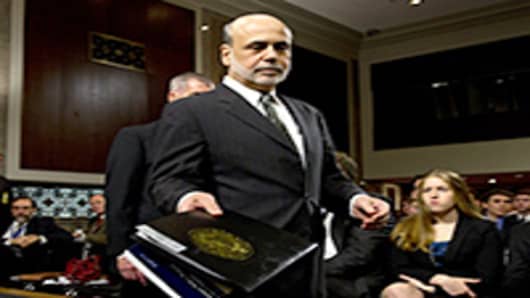Don't know if you've listened to the Ben Bernanke testimony, but it has been a strange one. Strange because Mr. Bernanke was pelted by questions on Libor — and I don't mean one, I mean many.
There have even been some vague questions asking why U.S. regulators, including himself, weren't more aware of what was going on. (See -NetNet: Congress, Not the Fed, Should 'Get to Work')
Why the obsession with Libor when the country is in a serious economic crisis?



